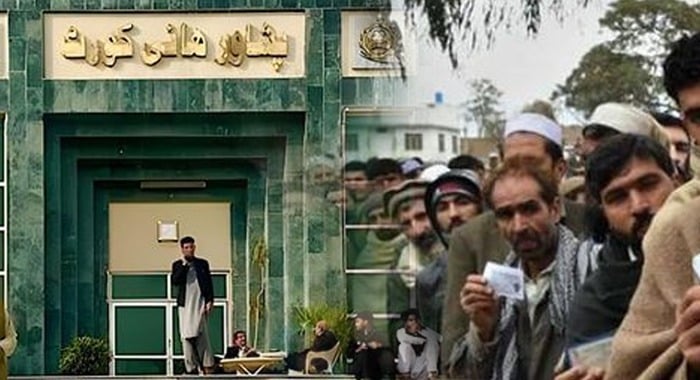The Peshawar High Court has issued a written order barring the detention and deportation of Afghan nationals holding Proof of Registration (PoR) cards until June 30, 2025, providing temporary legal protection to thousands of registered refugees amid a nationwide crackdown on undocumented migrants.
In a detailed judgment on a petition challenging the forced expulsion of PoR card holders, the court directed all law enforcement agencies to refrain from arresting, detaining, or harassing individuals in possession of valid PoR cards. The court further noted that the federal government has not yet made a formal decision regarding the deportation of PoR card holders and clarified that any decision on their continued stay or extension of their status will rest solely with the federal authorities.
The court order also instructed the Advocate General to ensure that all relevant government departments and enforcement bodies are informed of the ruling. The petitioner’s counsel had informed the court that police and district administrations were allegedly involved in the unlawful deportation of registered Afghan refugees despite their legal status.
This development comes amid a broader push by the government to deport undocumented migrants, with the second phase of the crackdown launched last week. The move raised alarm among refugee communities and human rights organisations, who have urged Pakistan to uphold its obligations under international law and cease any forced returns.
Pakistan currently hosts millions of Afghan refugees, many of whom fled their country due to war and persecution. The ruling by the Peshawar High Court has offered temporary but significant relief to PoR card holders, allowing them to remain in the country lawfully for now.
As the June 30 deadline nears, uncertainty remains over the long-term future of Afghan refugees in Pakistan. Human rights groups continue to press for a permanent resolution that respects refugee protections and international human rights commitments.





